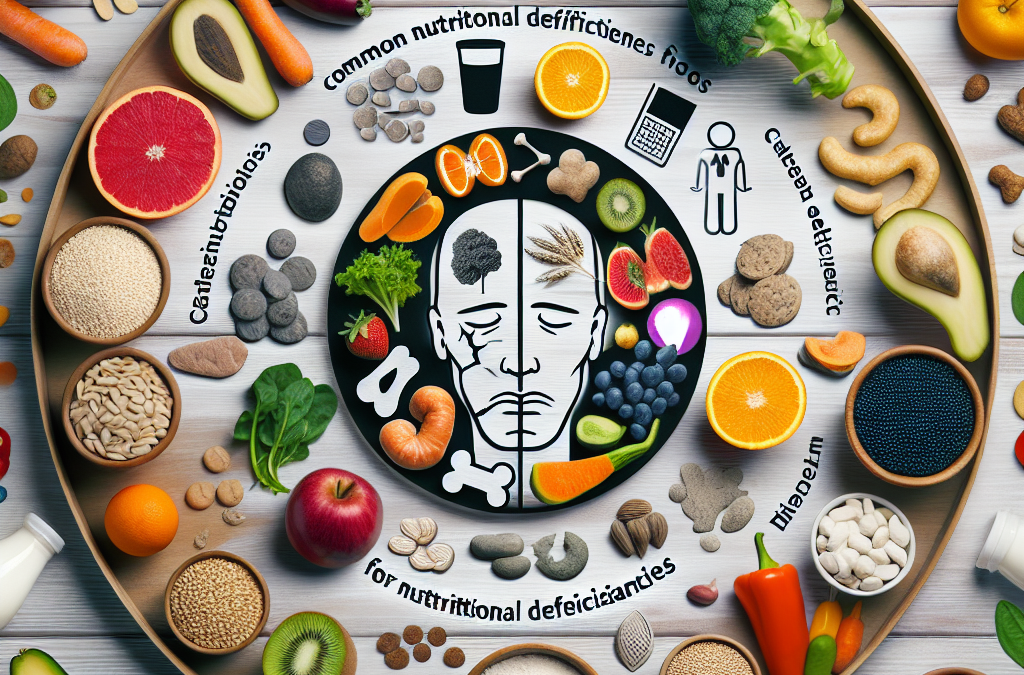Understanding Nutritional Deficiencies
What are Nutritional Deficiencies?
So, let’s kick things off by chatting about what nutritional deficiencies really are. Basically, they happen when we don’t consume enough essential nutrients—these are the vitamins and minerals our bodies crave to function like a well-oiled machine. I mean, who knew that something as simple as a lack of iron could lead to feeling tired all the time, right?
This isn’t just a small problem you can brush under the rug. Over time, deficiencies can lead to some pretty serious health issues, like anemia from iron deficiency or scurvy from lack of vitamin C. It’s like neglecting your car; eventually, you’re gonna need a tow truck if you keep ignoring the check engine light!
Understanding these deficiencies is the first step in combating them. Knowledge is power, my friends! Let’s keep our eyes peeled for signs that our bodies might be missing out, so we can jump on solutions before they escalate into bigger issues.
Importance of a Balanced Diet
What Does a Balanced Diet Look Like?
A balanced diet is like a great recipe—it’s all about the right mix of ingredients. Think of it as filling your plate with a variety of foods across different food groups. You’ve got your fruits, veggies, lean proteins, whole grains, and healthy fats. Each group comes with its own set of nutrients that play a unique role in keeping us healthy.
Eating a rainbow of foods not only keeps meals interesting, but it also ensures that you’re covering your nutritional bases. I’ve often caught myself in ruts eating the same few things over and over, and it’s usually in those moments I find myself wondering why I’m feeling a bit off energy-wise.
So my recommendation is to get creative in the kitchen! Experiment with seasonal produce or try out new recipes that challenge your palate. You never know what new favorite you might discover, and your body will thank you for it.
Natural Food Sources for Key Nutrients
Fruits and Vegetables
Fruits and veggies are like the all-stars of nutritional value. You’ve heard the buzz about “superfoods,” right? These are often just those fruits and veggies that pack a powerful punch with their vitamins, minerals, and antioxidants. For example, dark leafy greens like spinach or kale are loaded with iron and vitamins A, C, and K!
Don’t underestimate the classic counterparts, either. Bananas can give you that potassium boost, while berries are rich in antioxidants that can fight those pesky free radicals in your body. Ever notice how a burst of fresh fruit can turn your mood around? It’s not just in your head; it’s those nutrients working their magic!
A good trick I’ve tried is prepping my fruits and veggies ahead of time—think meal prep! When they’re ready to go, I’m way more likely to snack on them instead of reaching for a bag of chips. Plus, they add color to my meals, and who doesn’t love a colorful plate?
Supplements: When They Are Necessary
Identifying the Gaps
Sometimes, no matter how hard you try, you simply can’t get all your nutrients from food alone. Busy lifestyles, dietary restrictions, and life’s curveballs can make it challenging to maintain that perfect balance. This is where supplements come into play.
Get an Amazing Discount on the Best Certified Organic Whole Food Supplement!
It’s super important to identify where you might be falling short before just throwing everything in your cart at the health store. I learned the hard way—after spending a small fortune on a jumble of vitamins that I didn’t really need! A nutritionist or your healthcare provider can help you pinpoint any deficiencies.
When you pinpoint those gaps, supplements can really make a difference in your overall health. Just remember, they’re called supplements for a reason—they should supplement a healthy diet, not replace it!
Listening to Your Body
Signs Your Body is Sending You
Your body is like your best friend; it gives you hints when something’s not quite right. Are you feeling fatigued even after a solid night’s rest? Maybe you’ve been catching colds more than usual. These could be your body’s way of waving a little red flag.
Listen to these signs! For instance, if you’re experiencing an unusual amount of hair loss, that could be a sign of low iron levels. It’s funny how much your body communicates with you if you just take the time to pay attention.
Finally, don’t be shy about consulting a professional if something seems off. Whether it’s a nutritionist or your family doctor, they can help guide you through any deficiencies and get you back on the road to feeling fab.
FAQs
1. What are the most common nutritional deficiencies?
Common deficiencies include vitamin D, iron, vitamin B12, calcium, and magnesium. It really varies by individual diet and geographic location, but these are some of the usual suspects.
2. How can I tell if I have a deficiency?
Symptoms can vary widely; fatigue, weakness, changes in mood, and even skin issues can be signs. If you’re curious, a blood test through your healthcare provider can help pinpoint specific deficiencies.
3. Should I rely on supplements alone for nutrients?
Nah! Supplements should never replace a balanced diet. They can help fill the gaps when necessary, but a variety of whole foods is always the best bet for meeting your nutritional needs.
4. Can I get all my nutrients from a vegetarian or vegan diet?
Absolutely! But it requires a little more planning. Focus on diverse plant-based sources of nutrients, and consider a B12 supplement if you’re vegan, alongside other nutrients that may need closer monitoring like iron and omega-3 fatty acids.
5. What are some quick meals I can prepare to avoid deficiencies?
Smoothies packed with leafy greens, nut butter, and seeds are wonderful! Quinoa bowls with veggies and beans are also a favorite of mine. Just mix and match what you have for delicious nutrient-dense meals!





